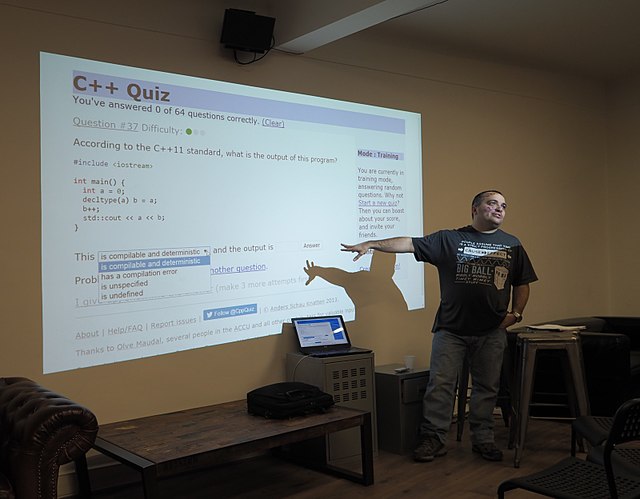Inheritance (object-oriented programming)
In object-oriented programming, inheritance is the mechanism of basing an object or class upon another object or class, retaining similar implementation. Also defined as deriving new classes from existing ones such as super class or base class and then forming them into a hierarchy of classes. In most class-based object-oriented languages like C++, an object created through inheritance, a "child object", acquires all the properties and behaviors of the "parent object", with the exception of: constructors, destructors, overloaded operators and friend functions of the base class. Inheritance allows programmers to create classes that are built upon existing classes, to specify a new implementation while maintaining the same behaviors, to reuse code and to independently extend original software via public classes and interfaces. The relationships of objects or classes through inheritance give rise to a directed acyclic graph.
Single inheritance
Multiple inheritance
Multilevel inheritance
C++ is a high-level, general-purpose programming language created by Danish computer scientist Bjarne Stroustrup. First released in 1985 as an extension of the C programming language, it has since expanded significantly over time; as of 1997, C++ has object-oriented, generic, and functional features, in addition to facilities for low-level memory manipulation for making things like microcomputers or to make operating systems like Linux or Windows. It is almost always implemented as a compiled language, and many vendors provide C++ compilers, including the Free Software Foundation, LLVM, Microsoft, Intel, Embarcadero, Oracle, and IBM.
Bjarne Stroustrup, the creator of C++, in his AT&T New Jersey office, c. 2000
A quiz on C++11 features being given in Paris in 2015
Scene during the C++ standards committee meeting in Stockholm in 1996
The draft "Working Paper" standard that became approved as C++98; half of its size was devoted to the C++ Standard Library.







